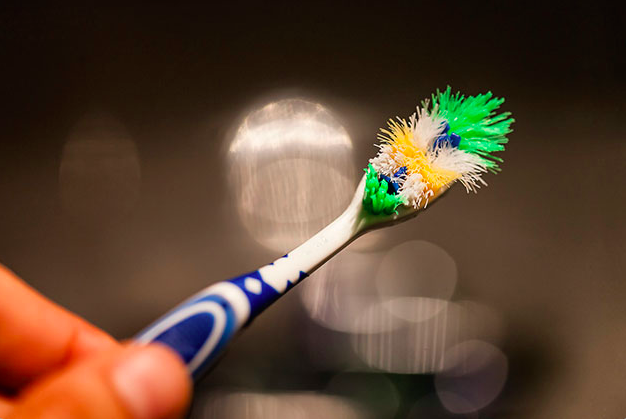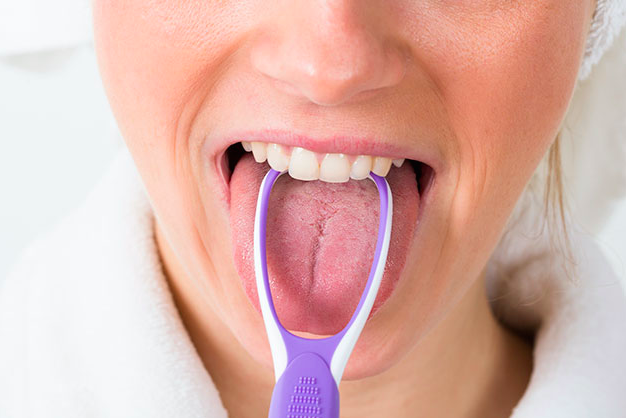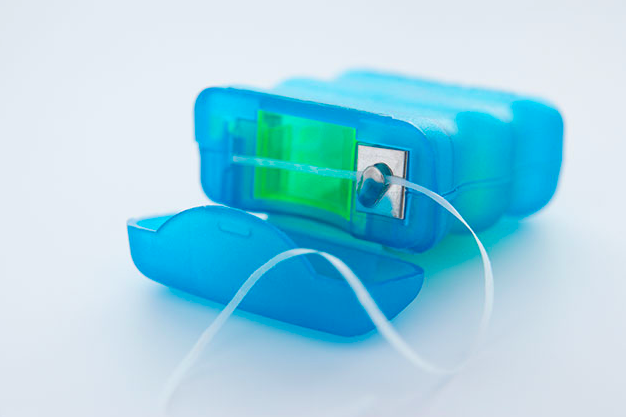
If you’re committed to doing what your dentist recommends, you’re going to need to replace the dental tools and accessories you use on a regular basis so they continue to keep your teeth and mouth clean and healthy. Just as you update your clothing for the right season, or replace the brakes in your car, almost everything in life requires maintenance to function properly. When it comes to your mouth, failing to update dental supplies could result in unexpected news at your next dental visit.
So, how do you know when your oral health supplies need to be replaced?
Your toothbrush

Remember, the tools you use to protect your mouth require updating.
Your toothbrush is one of two oral health tool staples that you must own and use every day, the other being dental floss. Brushing at least twice every day is highly recommended by dental professionals.
What do the experts say about replacing your toothbrush?
Several people wonder “How often should you change your toothbrush?” According to the American Dental Association (ADA), your toothbrush should be replaced at least every 3-4 months. If it becomes worn out or the bristles are frayed, you may need to replace it sooner.
Why is replacing your toothbrush regularly important?
"If you’ve recently been very sick, it may be a good idea to replace your toothbrush after you’re no longer contagious."
If the bristles of your toothbrush are frayed, flattened, or misshapen in any other way, it’s not going to effectively reach all the little spaces between and behind your teeth as it could when it was new, leading to dental issues down the line like plaque build up and cavities.
This wearing down and fraying of the bristles happens naturally as the brush is used, so purchasing replacements often enough is your best bet for maintaining an effective brushing habit.
Another consideration is illness and the spread of disease.
For obvious reasons, a toothbrush can harbor bacteria. How you clean and store your toothbrush can help keep these germs at a minimum, but they can’t be completely eliminated. If you’ve recently been very sick, it may be a good idea to replace your toothbrush after you’re no longer contagious. Otherwise, there’s a chance you could re-infect yourself or contaminate a family member’s brush accidentally.
Your tongue cleaner

Do you know all the ways a tongue cleaner can benefit your mouth?
What? You don’t scrape your tongue?
In fact, the use of a tongue cleaner (tongue brush or scraper) is not nearly as commonplace as it really should be, considering the benefits it offers:
- Instant cure for the majority of chronic bad breath problems
- Removal of potentially harmful bacteria
- Improved sense of taste
- Potential improvements in digestive health and immunity
While brushing your tongue when you brush your teeth is a start, a scraper does a much better job of actually removing what coats your tongue rather than just moving it around. Don’t believe us? Look at some popular tongue scraper before and after photos and you’ll be a believer in no time.
While material doesn’t matter, both a plastic or metal tongue scraper will do the trick, make sure you choose one that’s comfortable on your tongue and doesn’t cause any discomfort. In case you've never seen one before, the BreathRx tongue scraper is a popular option.
What do the experts say about replacing your tongue cleaner?
Although the ADA hasn’t weighed in with an authoritative announcement about tongue scraper replacement, the most common recommendation is similar to the toothbrush: replace your tongue cleaner at least every 3-4 months, sooner if it becomes worn or damaged.
Your floss

Flossing is one of the most important actions you can take to protect your teeth and gums.
Since dental floss is disposable by nature, you obviously don’t need to know how often to “replace” your floss in the same way discussed above. But there are several different types of dental floss available, and you may benefit greatly by replacing your current floss with a different type.
What do the experts say about replacing your floss?
Of all the different types of dental floss, such as waxed, unwaxed, string, ribbon, flavored, unflavored, and Teflon, studies don’t show any noticeable benefits of using one over another.
Practically speaking, waxed and Teflon floss will usually be easier to use and more effective for people with tightly spaced teeth. Thicker string-style flosses will similarly be more effective for those with wider spaces between their teeth.
Why is floss replacement important?
Essentially, whichever style of floss (or flossing alternatives) will help you develop and maintain the daily flossing habit is the one you should choose. If that’s not the one that’s currently in your medicine cabinet, it’s time to look into a replacement.
Your dentist’s advice
While the professional advice your dentist provides is not technically a “dental supply,” it is a valuable tool in your ongoing oral health. You’re not likely to “replace” your dentist’s advice as they are the ultimate authority on oral health.
However, you should go to your dentist at least once every six months to get that advice updated and refreshed based on current circumstances. Regular visits to the dentist will provide the needed deep cleaning that standard daily brushing and flossing can’t always accomplish, and it also provides the dentist with an opportunity to visually examine your teeth, gums, and the rest of your mouth for signs of possible conditions requiring treatment.
If you’ve hesitated to make a routine dental visit every six months due to the cost, learning how much you can save with a discount dental card (hint, up to 50 percent!) can help alleviate that concern so you can focus on maintaining good oral health.


